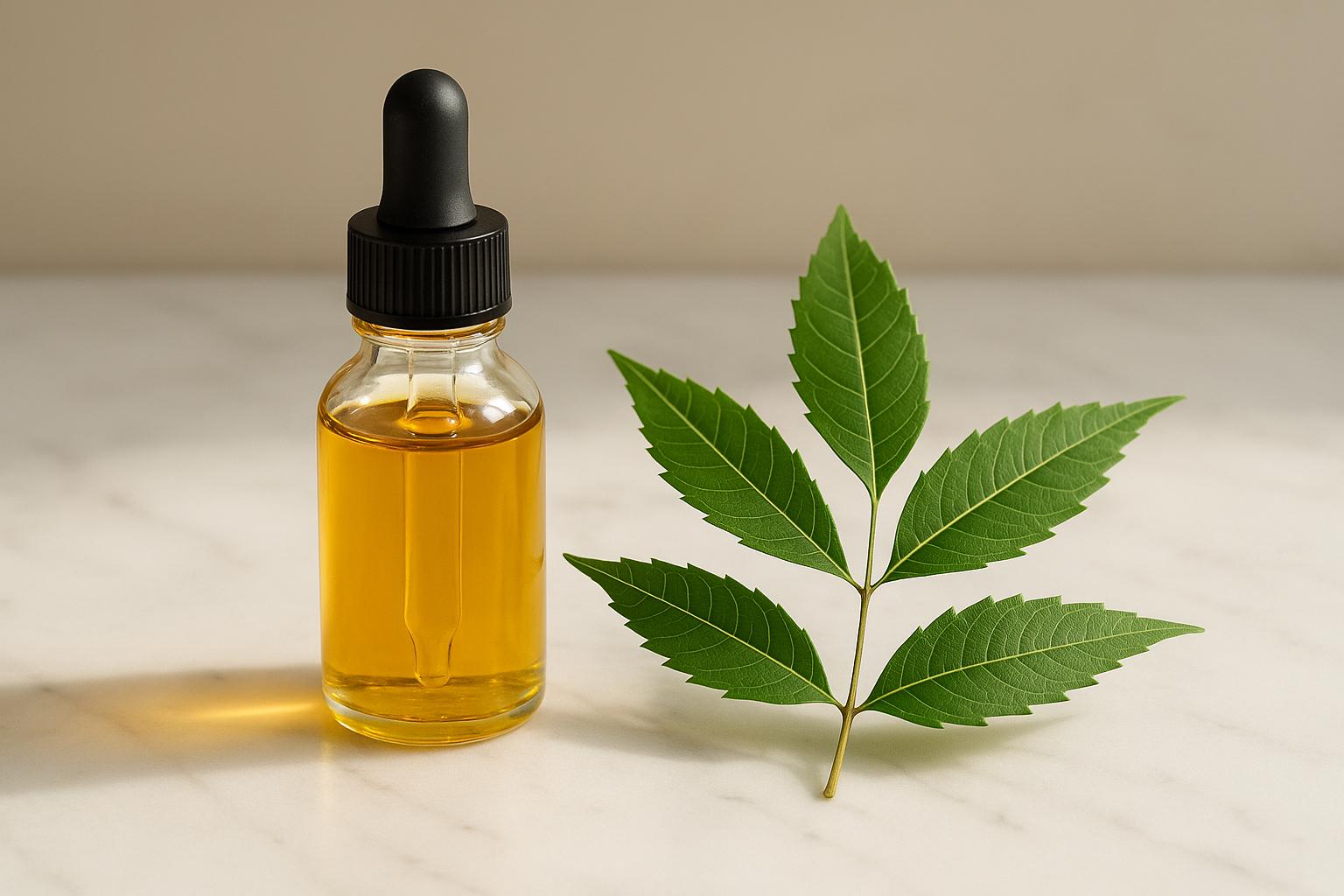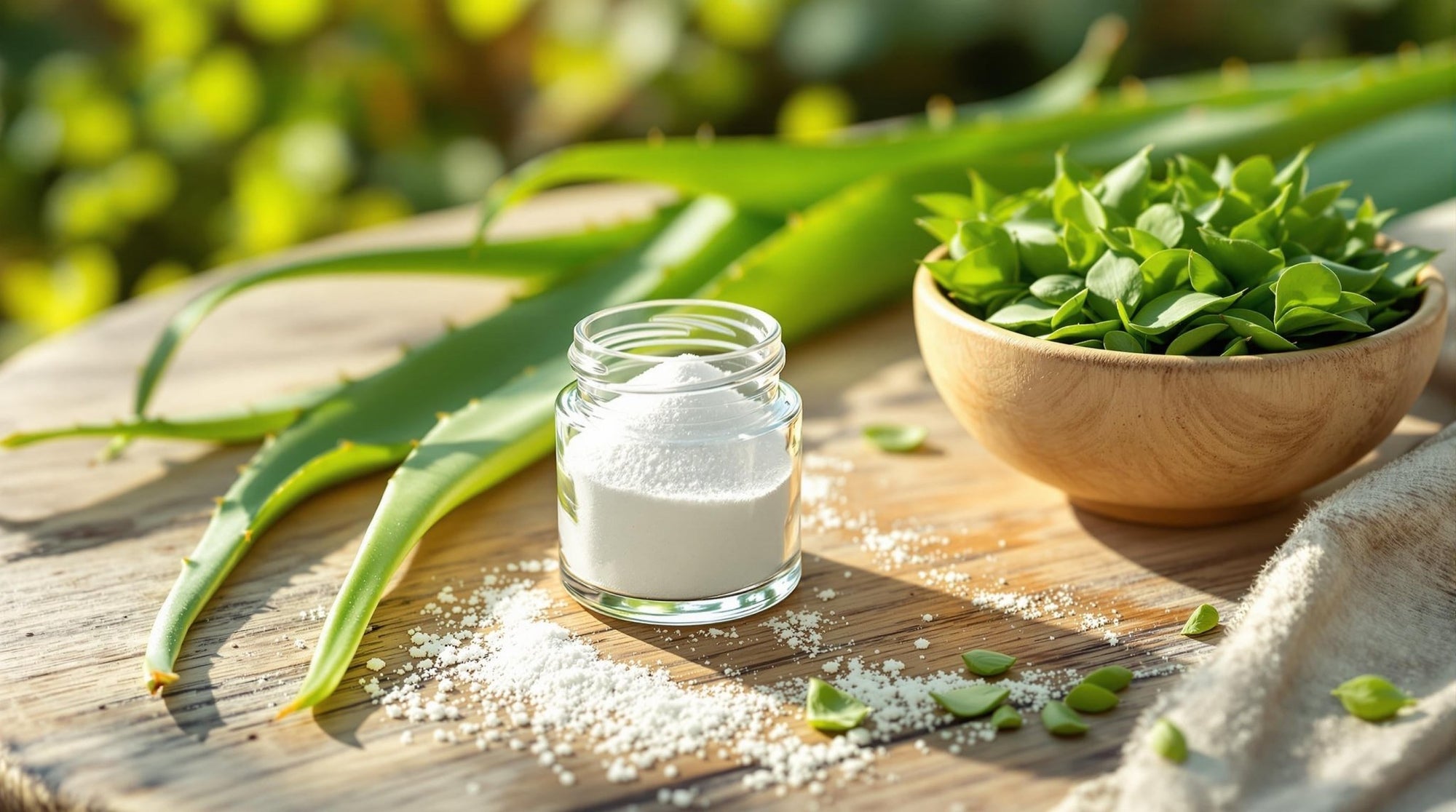The underestimated power of the gut in psoriasis

Psoriasis, also known as psoriasis , is a chronic skin disease that affects millions of people worldwide. In addition to the external symptoms such as redness, flaking and itching, there is increasing evidence that the condition of the skin is closely linked to the condition of the intestines.
In this article, we'll look at how gut flora affects skin, particularly in the context of psoriasis.
The fascinating connection between intestines and skin
Research has shown that there is a close connection between the gut and the skin. The gut is a complex ecosystem inhabited by a variety of microorganisms, including bacteria, viruses and fungi. These microorganisms play an important role in maintaining a healthy immune system and skin.
A healthy intestinal flora ensures an intact skin barrier and the avoidance of excessive inflammatory reactions through anti-inflammatory substances from bacteria and the regulation of the immune system.
An unhealthy intestine with an unbalanced bacterial composition, on the other hand, promotes autoimmune reactions in the skin as well as a weakened barrier and increased susceptibility to irritation due to inflammatory bacteria and a lack of regulation of the immune system.
How is the intestinal flora related to psoriasis?

A change in the intestinal flora called dysbiosis has been found in people with psoriasis . Dysbiosis in the intestine is an imbalance among the intestinal bacteria. Beneficial bacteria then decrease while harmful germs take over. The intestine loses its important protective function because the “good” bacteria are missing.
This dysbiosis can lead to excessive activation of the immune system, which in turn can trigger inflammation in the skin. Particularly in skin diseases such as psoriasis, which are already associated with impaired immune regulation, additional activation due to intestinal imbalance can intensify the symptoms or even trigger them in the first place.
A balanced intestinal flora is therefore important in order to keep the immune system in balance and to prevent excessive inflammatory reactions, which are also noticeable on other organs such as the skin. In addition, toxins and waste products that are normally excreted by the intestines can enter the bloodstream and affect skin health.
How can you ensure healthy intestinal function?

To reduce the negative impact of the intestines on the skin, it is important to maintain healthy intestinal function. A balanced diet rich in fiber , fruits , vegetables , and probiotic foods can help improve gut health. Probiotics are live microorganisms that can have a positive effect on the intestinal flora. They can be taken in supplement form or found in fermented foods like yogurt and sauerkraut.
Additionally, avoiding certain foods that are potentially inflammatory, such as sugary foods , refined carbohydrates , and saturated fats , can help reduce inflammation in the gut and skin.
It is important to note that intestinal flora is complex and cannot be influenced by dietary changes alone. A holistic approach that also takes into account lifestyle factors such as stress management , appropriate exercise and sufficient sleep is crucial. We understand that psoriasis can be individual and each affected person has a unique story.
What else you can do for your skin
A healthy intestine is important, and external treatment of psoriasis is equally important.
Our goal at natüür is to help you improve your quality of life by offering you natural psoriasis skincare products based on sound research and facts. We recognize that psoriasis is a complex disease and that our products may not have the same effect on all customers. Nevertheless, we are confident that our products such as ourpsoriasis cream can help provide relief.
Conclusion
Overall, the gut-skin connection in psoriasis is an exciting area of research that continues to be investigated.
There is a connection between the intestines and skin, including the effect on psoriasis. The intestines or the intestinal flora can be supported by consuming certain foods. It is also recommended to apply care products externally to the affected skin areas.
By focusing on healthy gut function in conjunction with healthy skin and adopting a holistic approach, you could potentially help relieve the symptoms of psoriasis and improve your overall health.




